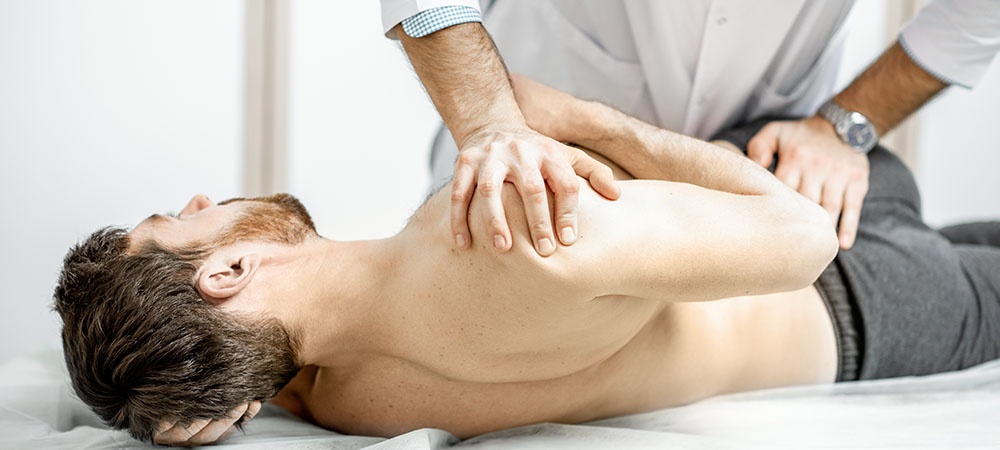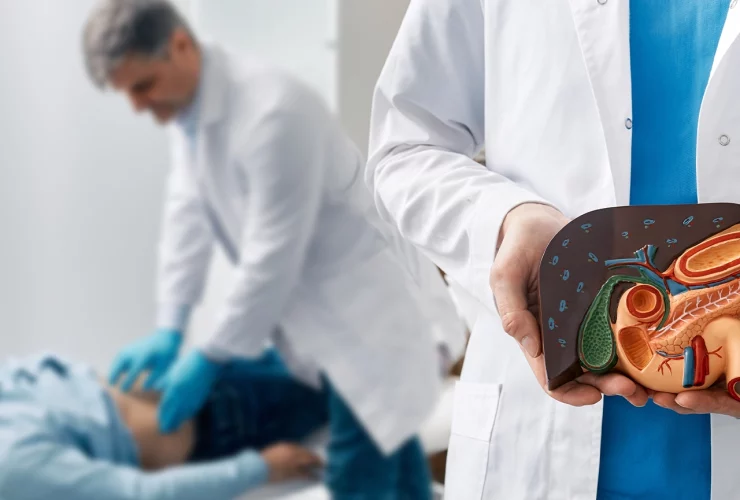Alcohol Recovery Treatment & Ideas 2022
Alcohol addiction is an agelong problem that can affect anyone regardless of age, race, or social standing. If you think otherwise, ask the several historical figures who struggled with alcohol addiction in their lifetime. Most notably, influential individuals such as Ernest Hemingway, Thomas Edison, and even Benjamin Franklin had alcohol addiction problems.
It’s easy to term alcohol addiction as a result of carelessness or weakness. However, you’d do well not to underestimate alcohol’s compelling power. Once you give yourself to the bottles, you may find it challenging to drop the cup. And that’s probably the reason for your current alcohol dependency.
Fortunately, modern treatments keep evolving daily with discoveries that help make alcohol recovery more effective. As a result, there are now several approaches to tackling alcohol dependency. In addition, thanks to years of research, health professionals now have a variety of alcohol addiction treatment methods suitable for each patient.
So, the physician will recommend one for you based on your specific needs. This blog is a comprehensive guide to some available alcohol recovery treatment options. We created this post to help you understand different alcohol recovery techniques and how you can select the best option for you. So, read on to find out what will work for you.
What is Alcohol Addiction?
Alcohol addiction, also known as alcoholism, is a condition that makes a person drink alcohol in excess. An alcohol addict will consume so much liquor that their body eventually becomes dependent on it. And when that happens, the person will find it challenging to function correctly without having alcohol in their system.
Alcohol addiction doesn’t occur as a result of one night’s drinking. Instead, it takes constant consumption, which will then cause chemical changes in the brain. But, of course, the change in cognitive activity is also gradual, and the effects can take months or years before becoming apparent.
So, not everyone who drinks alcohol is an addict. That’s because enjoying a pint or two of beer doesn’t make you dependent on it. In that case, you’re simply indulging in harmless pleasure. So, a shot of vodka or other strong alcohol now and then also won’t hurt.
However, alcohol use becomes a problem when you start abusing the substance by taking it more frequently and in large quantities. Doing that often leads to a harmful addiction, putting you in a precarious situation.
So when you develop an addiction to alcohol or other substances, you’ll often find yourself consuming a lot of it. I.e., you’ll be taking more than a reasonable amount of liquor for a human. And you’ll often find yourself being under the substance’s influence.
So, to break free, you must go through alcohol recovery treatment. Sadly, it may take you weeks, months, or even years to get over your alcohol addiction completely. Nonetheless, let’s examine the different steps involved with alcohol addiction treatment and what they entail.
Related Article: Drug Rehab Cost in British Columbia
Stages of Alcohol Recovery Treatment
You can’t recover from alcohol addiction overnight the same way you can’t develop the drinking habit in a day. That’s why addiction recovery isn’t something that happens by chance. Instead, it requires commitment and motivation. So, on your way to recovery, you should expect to experience the following stages.
Precontemplation Stage
The first stage in the journey towards alcohol treatment and recovery is not what most people would imagine. But, generally, individuals in the first stage of their battle against addiction go through this phase. Specifically, here’s where they realize the negative impacts of the habit and how it’s influencing their lives.
But unfortunately, addicts at this stage have no intention of changing –Yet. The defence mechanisms against stopping are still strong at this point. You make every excuse and try all you can to not acknowledge that you have a problem. You may even give yourself reasons why you shouldn’t stop.
In worse cases, you may even lie and blame others. You’ll do anything that’ll help you avoid facing the problem. This stage is often overwhelming as the realization lingers, and it usually takes a lot of willpower to come to terms with it.
The best way to help addicts in this stage is to show empathy and engage in sympathetic conversations with them. Try to discuss the pros and cons of their behaviour with them. Helping them to see the negatives more clearly will set the groundwork for the second stage of the process.
Contemplation Stage
This stage is more definitive than the previous one because it’s the point where you begin to recognize the real problem. Here, you’re no longer in denial and have come to terms with your drinking problem. But that doesn’t mean you’ll be ready to seek active alcohol abuse treatment yet.
It won’t be surprising if you get stuck at this stage for a while. Here, you’ll generally spend considerable time mulling over whether to change or not. You’ll convince yourself you’re trying to make the best decision, whereas you’re only stalling and procrastinating your decision.
So, you may say, “Let me watch it for a bit longer. I’ll begin treatment in a few months if things don’t change.” But you’re not committing yourself by not picking a specific date. And so, you can keep doing that until you eventually make the right decision in seeking help.
So, at this stage, you know you need the change; you’re just not ready to take action. So, that’s the reason for the delay.
The best way to get over this stage is to do a cost-benefit analysis of your habits. It’s as simple as weighing the advantages of abusing alcohol with its costs. Note that the prize covers financial, social, and physical costs.
So, you need to consider everything you’re losing to your addiction. It’ll help you gain more clarity on whether you want to continue the habit or not.
Preparation Stage
The preparation stage signals the beginning of the actual noticeable change in the alcoholic’s attitude. You have decided to ditch the drink and get your stuff together at this stage. So now, you’re planning to take meaningful steps towards abstinence and recovery.
The main highlight of this stage is your commitment to change. Finally, you’re ready to take action on your addiction within a specific time frame, and you’re prepared to follow through. Although you’re still drinking, you’re no longer stalling or procrastinating. Instead, you’re preparing yourself to take the step.
You may have even begun informing people around you about your plans. But you still feel some ambivalence about your decision. No need to fret; no one regrets choosing a healthier way of life. It may take a while to accustom yourself to it. But once you achieve sobriety, you’ll always be glad you let go when you did.
A common mistake people tend to make at this stage is trying to rush the recovery. Alcohol addiction doesn’t happen in a week; likewise, a full recovery won’t happen in such time. You can imagine the addiction recovery treatment as a long journey rather than a short trip. It’s a lengthy process that will contain many experiences – you can’t rush it.
So, the best approach to this stage of alcohol addiction recovery is to develop a strategy for the period. Then, with the help of an expert, create a plan to beat your dependency. It may include lifestyle change, researching and picking the best treatment options and facilities, etc. You may also set milestones and outline activities to help you achieve those goals.
Action Stage
At this stage, you’re no longer thinking, “I want to take alcohol recovery treatment.” You’re taking action. So, you’ve graduated from denial to acceptance to planning to execution. So, this stage primarily signifies where the painful and most rewarding aspect of the recovery starts.
Generally, most people regard this point as the first phase of alcohol recovery. That’s because the three previous stages often involve a lot of hushed and passive decision-making. An addict can go through the first three stages without letting anyone know what they’re doing.
However, this stage requires you to get out and seek help. So people will get to know, which will make them think you’re just setting out on your alcohol recovery journey.
Then again, this stage contains all the major recovery procedures, most notably detoxification and rehabilitation. It starts with the former before steadily progressing to the latter.
Of course, you can take this stage at an inpatient facility, or you can decide to take it in your home. However, ensure you should get the opinion of an expert before deciding which option you want to go for. The early stages of alcohol recovery can be quite dangerous – even life-threatening in extreme cases. So you want to ensure you have professionals watching you every step of the way.
Plus, this stage will be more physically and mentally taxing than any of the others. So you need to prepare adequately before diving into it. The most guaranteed way to survive this step is to seek professional medical help. Don’t go cold-turkey or try to do it alone; you may do yourself more harm than good in the process.
Maintenance Stage
After going through and completing the action stage, your caregivers will automatically put you in the maintenance level of the journey. You would have taken various treatments, medications, and therapies during the preceding step. So, now you’ve learned to deal with the addiction, your body can function normally without the liquor.
Unfortunately, it’s not a complete victory yet. You’ll now have to learn to sustain that victory. In other words, keep going about your daily life while avoiding a relapse. And trust us, it’s often a bit more challenging than most people will put it. That’s because, at this stage, you must avoid alcohol use in all forms. So, even though you’re okay now, you don’t get even half a glass of alcohol.
It becomes even more difficult if you have people around you who like to drink alcohol. Then, you go out partying with them, and while they’re chugging down cup and after cup, you’re sitting there drinking soda. So you must be cautious at the stage of your alcohol recovery treatment to avoid relapsing.
The maintenance stage often goes for an extended duration as it can take from six months to several years. However, it allows you to integrate and embody all you learned during the action stage, so it becomes second nature. I.e., you’ll replace your alcoholic personality with a healthier version of yourself.
Typically at this stage, therapists will advise you to learn skills and develop hobbies that you can use as a coping mechanism. Also, you’ll have to practice the strategies you’ve learned to avoid triggers and relapse. The best part is that prolonged abstinence with a healthy lifestyle during this stage will foster recovery from Liver damage.
Termination
Termination isn’t a recovery stage per se, but it’s the point where you’re entirely free of your addictions. I.e., You’re fully sober and no longer experience cravings for alcohol.
However, many argue that termination is impossible as alcohol addiction never truly disappears. Those people believe there’s always a risk of relapse and that patients require lifelong monitoring and treatment. While this idea is up for debate, it’s true that many patients who achieve long-term sobriety still display occasional impulsive and dysfunctional behaviours.
Then again, some may argue that patients who display such behavioural dysfunction just weren’t able to reach the termination stage. Hence they tag such ex-addicts as dry drunks.
Nonetheless, alcohol treatment and recovery is never a straight journey; you shouldn’t expect it to be. Very few people can progress through the first four or five stages in a linear fashion. Frequently, people move back and forth between the stages as they tackle their addiction. So, if you’re struggling for a bit, don’t worry; it’s all part of the process. When you fall, don’t stay down; pick yourself up and keep moving.
Alcohol Detox and Rehabilitation Process
While recovery from alcohol addiction generally occurs in six stages, the treatment occurs in two steps. These two steps occur over the last two stages of the recovery journey. So, regardless of the treatment option you go for, prepare yourself to go through the following aspects of alcohol recovery.
Detoxification
By design, the human body identifies foreign substances poisonous to its components and flushes them out. So, given enough time, an addict’s body will push out every bit of the addictive substance the individual may have ingested. Therefore, alcohol detox is a process whereby your body removes the remnants of alcohol from its system.
However, for detox to happen, you must fulfill one condition: abstinence. Detoxification begins when you stop taking in the substance and give the body a chance to separate the harmful materials and line them up for eviction. And it’s only after your body gets rid of the last bit of the poison that it can start healing and give you a chance at a full recovery.
Unfortunately, many people make the mistake of skipping the medical detox process when working towards alcohol recovery. That’s like trying to treat a poisoned individual without first removing the poison from their system. Fortunately, the human body will get right to work once you begin abstinence. So, your detoxification inevitably starts when you stop drinking.
However, the detox process comes with a lot of discomforts. You’ll experience the most painful side effects of alcohol withdrawal at this point. You may even relapse a few times during the procedure. But you must go through it to achieve a comprehensive recovery.
What You Should Expect During Detox Program
Summarily, you should expect to experience a lot of discomfort for the first few days after taking your last drop of alcohol. Typically, the first wave of withdrawal symptoms occurs within 24hours of quitting the substance.
The symptoms will start with a desire to use the substance again and then worsen as time progresses. You can experience any or all of the following during the withdrawal process.
- Anxiety
- Delirium Tremens; A psychological issue that can result in restlessness, hallucination, extreme fever and even seizures
- Insomnia
- Irritation
- Nausea and Vomiting
- Palpitations
- Depression and so on.
The extent of your withdrawal symptoms will depend on your level of addiction. If you’re mildly dependent on the substance, the detox regime will be easier for you. However, chronic alcohol abusers will have difficulty getting through the first 72 hours of detox.
Then again, alcohol detox typically lasts from 3 to 14 days, depending on the addiction level. The withdrawal symptoms are usually severe for the first 72 hours, but you should start feeling better by the fourth day as the process becomes less painful. In addition, the physical pains from alcohol withdrawal should subside by the end of the first week after abstinence.
A detox program will provide the necessary support you need to get through the first withdrawal stage of your recovery. Doctors will deliver the essential caregiving that’ll help you get through what’ll most probably be the most challenging part of your recovery. In addition, signing up for a detox program decreases your chances of relapsing during alcohol detox. That’s why doctors often recommend it.
In addition, doctors will often recommend taking your detox at an inpatient facility. Inpatient treatment clinics are often more protected, and you have all you need to aid your alcohol recovery. Plus, you’ll have round-the-clock support and monitoring from caregivers. So you don’t have to worry about succumbing to life-threatening withdrawal symptoms.
On the other hand, outpatient facilities are more affordable but not advisable for alcohol detox. You’ll only get to see the doctors for a few hours a day and don’t have 24 hours support. So, there’s a higher risk of relapsing or experiencing traumatic withdrawal effects.
Post-Detoxification Rehab
While detox may be the most painful aspect of the recovery journey, post-detox tests your will to stay sober. You’ve survived the initial onslaught; now it’s time to endure the battle of attrition. So, even though you may no longer feel physical pain from alcohol abstinence, you still have to deal with the mental cravings.
The detoxification period is when your body gets over its dependency on alcohol, and it often doesn’t take more than a few weeks. However, your mind takes much longer to recover from your alcohol addiction. So the post-detox period primarily addresses your mental recovery from substance abuse.
But, of course, your body also takes this period to repair the damages your self-deprecating habit has caused. Most significantly, your liver will recover, and you’ll learn to function properly without alcohol.
While most doctors recommend taking the detox process at an inpatient facility, they’re often more flexible with the post-detox process. So you can opt for an outpatient option where you get to go home after daily sessions with your caregivers. Of course, inpatient treatments are often safer, but they also cost more. On the other hand, outpatient alcohol addiction programs aren’t as expensive and are also quite effective.
Therapy Options Available for Alcohol Addiction Treatment
Now that you’re aware of the different stages you’ll go through during your alcohol recovery treatment; the next step is to get into it. And now we’ll be going straight into stage three I.e. we’ll be considering how to recover from alcohol addiction and the different treatment options available to you.
Psychotherapy
Psychotherapy is the most typical approach to addiction recovery and is the primary form of treatment most people opt for during their rehab.
Also known as talk therapy, psychotherapy primarily involves a few therapeutic interventions. During the process, a trained therapist with experience in psychological methods and theories engages in discussions with the addict. The goal is to improve the patient’s mental health and detach them mentally from the item of addiction.
Psychotherapy serves as a roadmap for caregivers. It’s one of the methods treatment centers employ to understand their patients better. Then again, they help the patients better understand themselves and their addictions. So, they get to better understand the root cause of their addiction, the triggers and things that foster their bad habits. In that way, talk therapy is beneficial for both parties.
Interestingly, it’s a practical treatment approach as three out of four people often show improvement due to psychotherapy. Although, it’s worth noting that caregivers never do psychotherapy in isolation. So they often combine it with other treatment forms and medications.
Then again, this treatment approach isn’t always as effective during the detoxification stage. At that point, you’ll be dealing with the physical side effects of withdrawal and may not be able to hold much of a discussion with the therapist. So, doctors often reserve psychotherapy for post-withdrawal stage treatment.
Nonetheless, the treatment helps in a variety of ways. For example, it can assist you in making healthy lifestyle improvements in areas of nutrition, sleeping habits, and disposition towards fitness.
Psychotherapy often lasts for a few months. But sometimes, it may take years with daily sessions of 30 to 60 minutes. Then again, psychotherapy may include any or all of the following:
Cognitive Behavioural Examination
This approach identifies negative thoughts and behaviours that may trigger your bad habits. Then it tries to replace them with positive ideas and activities that eliminate the need for the drugs. So, it pays less attention to diagnosis and focuses more on solutions-oriented treatment using constructive actions.
Dialectical Behavioural Examination
This approach has its basis on the premise of the connectivity of all human behaviours, the constant changes around us and the synthesis of opposing elements. Essentially, it functions on the assumptions that form the basis of the philosophical system of dialectics. So, instead of tackling a problem, this approach encourages you to live in the present and not dwell in the past.
Under this approach, you’ll learn to find emotional balance and embrace positive change. In addition, by internalizing the four core strategies of mindfulness, distress tolerance, interpersonal effectiveness and emotional regulation, you’ll be able to manage your habits better.
The results of psychotherapy contribute significantly to a patient’s recovery. Sometimes, it’s sufficient to get addicts off their dependence. However, that only works for mild addictions with little to no withdrawal effects.
Biofeedback Therapy
Biofeedback therapy engages the connection between your body and mind by focusing on the nervous system. This alcohol recovery treatment teaches you to focus on the various voluntary body responses and control them. So, through biofeedback therapy, you learn to consciously influence your automatic body functions such as heart rate and blood pressure.
The therapy enables you to better understand your body’s condition and internal state. Then it shows you how you can influence them with your thinking. Think of it as a program that teaches you how to get your body to do certain things. Of course, the lessons also include mastering your body’s response to certain stimuli.
Like psychotherapy, this treatment option is non-invasive and doesn’t require any medication. However, the therapist will examine your physiology and your body’s current state. So, they may measure your body temperature and inspect your muscle tension. They may also review your neurofeedback using monitors attached to your body.
But of course, the therapists may apply this treatment in conjunction with medication and other addiction recovery alternatives. But the rehab primarily doesn’t involve taking foreign items into your body. So, the doctor will take you through a series of body adjustment exercises through a trial and error process.
The therapist will use a trial and error process because there’s no one-size-fits-all approach for the treatment. Instead, the doctor will work with you until you discover the best regime which suits you based on your physiology. In time, you’ll also learn to practice these adjustments without the help of a therapist. And you’ll be able to switch them up as necessary to achieve greater relaxation and better overall wellness.
You’ll typically notice the effects of biofeedback therapy in stress relief, increased impulse control and reduced anxiety. In addition, you’ll be able to manage your response to stimuli better and be more aware of your overall body condition.
Medically Assisted Alcohol Treatment
This recovery option is the most recommended by doctors for alcohol addiction. That’s because alcohol is one of the most challenging substances to beat once you develop a dependence on it. In addition, its detox is usually an excruciating process featuring a series of discomfiting withdrawal symptoms. In extreme situations, it may even be life-threatening for the abuse victim.
As a result, doctors often recommend not quitting alcohol addiction cold turkey. Cold-turkey addiction recovery involves abruptly stopping your drinking habits. It’s a situation where you just stop using it suddenly without prior preparation. Needless to say, your body wouldn’t be ready to go through such a sudden change. So, doctors often recommend medications that can make the whole process more bearable.
Below are some of the medications doctors recommend for alcohol recovery treatment. Please, get the approval of a professional before taking any of them for your withdrawal symptoms.
Benzodiazepines
Long-acting benzodiazepines such as Valium and Librum are some of the more common medications doctors prescribe for patients in the detoxification stage. These drugs help in managing acute detoxification pains and withdrawal symptoms. They also help addicts wean off their alcohol dependence by acting on the same brain receptors that the alcohol influences.
Acamprosate
Doctors prescribe Acamprosate to help manage alcohol cravings and other similar withdrawal symptoms. The medication also works on the brain receptors that alcohol influences. So it essentially curbs the cravings by muzzling the alcohol receptors in the brain. It also helps normalize brain activity that alcohol addiction has thrown into disarray. So it enables your brain to recover faster from alcohol dependence.
Disulfiram
Disulfiram is more of an abstinence enforcing device than a detox management mechanism. The medication’s function is to make you hate alcohol. Taking disulfiram a few hours before or after taking alcohol causes you to experience unpleasant hangover-like effects. It works by reacting to the alcohol content in your body and irritating your nervous system.
So, when you take Disulfiram and alcohol, you’ll experience some unpleasant symptoms. For example, as quickly as 10 minutes after consuming alcohol, you’ll experience facial flushing, nausea, chest pain and weakness. These side effects typically last for one hour. So, disulfiram isn’t a conventional cure for alcohol abuse; instead, it’s more of a deterrent for drunks.
Naltrexone
Most people recognize naltrexone as medication for opioid addiction. However, it also works for alcohol dependence. Naltrexone curbs the desire for narcotic products by preventing the body from getting high after consuming such substances. In the same way, it suppresses the euphoric and pleasurable effects the alcohol causes.
So, it prevents you from receiving a reward for drinking. And, what’s the point of drinking if you don’t feel the effect of the alcohol in your system?
Yoga
Yoga is a centuries-old practice which involves assuming different body postures and meditating. In some places, it’s more of religious practice, while in others, it’s just another exercise regime. Regardless, it’s pretty effective for relaxation and meditation.
The typical Yoga postures foster muscle relaxation, while meditation greatly benefits the mind. That’s why therapists often recommend it for individuals dealing with stress and anxiety. Of course, it also works for ADHD, PTSD, muscle problems and many other problems. Keep in mind most of them are also common alcohol withdrawal symptoms.
Yoga emphasizes the importance of physical health as a low-intensity workout regime. But it also benefits recovering addicts by improving their mental processes. For example, physical exercise helps the body regulate stress hormones, while meditation teaches calmness and control over one’s body.
Massage Therapy
Many people consider massage therapy to be a complementary practice to Psychotherapy. However, it’s undeniable that both options will combine to create a super-efficient alcohol recovery treatment. That’s because, while talk therapy works on the mind, massage therapy conditions the body.
But then again, massage therapy does more than condition the body. It also positively affects the brain by manipulating soft body tissues and releasing happy hormones. I.e., Serotonin, Dopamine and other neurotransmitters. So, it works great for treating general pain and anxiety.
Chiropractic Therapy
This addiction recovery treatment involves measured adjustment of the spine and other peripheral body parts. Many practitioners consider it a natural, drug-free alternative medicine. That’s because it generally helps relax the body, de-stress and relieve pain.
Due to their similar modalities, many people confuse massage therapy with chiropractic therapy. However, there’s a slight difference in the body parts each treatment option targets. FOr example, massage therapy primarily works on the muscles. Conversely, chiropractic therapy focuses on the spine and skeletal structure generally.
However, Chiropractors may combine additional methods such as hot and cold therapy, exercise etc., to make the rehab more effective. So, it shouldn’t surprise you if your caregiver gives you diet recommendations.
Music Therapy
Music can have therapeutic effects on the creators and the listeners. That’s why there are professional therapists who specialize in music-based addiction recovery treatment. Music cannot only have a soothing effect on the listener, but it can also help them become more.
Similarly, most music creators express their emotions and desires through sounds. So, you can learn to vent and let out your insecurities, anger or frustrations by singing or playing instruments. But then again, it’s not only negative emotions that you can exude with music. You can also show your joy, satisfaction and love in your lyrics and tones.
Moreover, music can motivate you to stick with your recovery regime. There have been cases of patients sticking around for their treatment due to the effects of music therapy. So, music therapy may just be what you need to beat your alcohol; you should try it out.
Family Therapy
Family therapy is just what it sounds like – rehab involving the patient and a “Family.” It combines multiple psychological and social practices for rebuilding and improving relationships. It works on establishing communication between you and your family. So it doesn’t focus on you alone; it brings your family dynamics into the equation.
Most people aren’t usually comfortable with this arrangement, especially if they hope to keep their addiction a secret. However, the therapy’s ultimate goal is to create harmony and support in the family.
Family therapy sessions are more common in Faith-based groups. However, you may also find them in secular treatment centers. Professional family therapists can facilitate the sessions and give you the help you need to beat your addiction.
Acupuncture
This therapy is not for you if you’re trypanophobic. Trypanophobia is the fear of needles, and acupuncture practitioners primarily use needles to administer treatment.
Acupuncture therapists insert special needles into the patient’s body to stimulate specific responses from the body. Of course, your body’s reaction will depend on the point where the therapist inserts the needle. But for an alcohol recovery treatment, the needles will go into points where they’ll stimulate healing.
Due to its effect, several doctors regard this alcohol recovery regime as a brilliant idea. So, it’s a preferred complementary treatment option in several clinics. Don’t worry; the practitioners are experts, and they use special needles that won’t hurt when they insert them into your body. So, if you’re afraid of the pain, you have nothing to worry about.
Related Article: How Much Does Drug Rehab Cost in Vancouver?
In the End
Does alcohol rehab work? Absolutely! You just have to find the appropriate recovery treatment for you. Also, keep in mind that your addiction triggers are more important than what you drink.
If you undergo alcohol recovery treatment without dealing with the triggers, you’ll soon find yourself indulging in your old habits again. Even in some cases, addressing your triggers may be all you need to overcome your alcohol dependence.
Then again, with so many therapy options, deciding which one is best for you may be confusing. We can help you with that; feel free to check out our world-class addiction treatment facilities for help. Inspire Change Wellness Centre will be glad to assist you on your journey to achieving sobriety.







